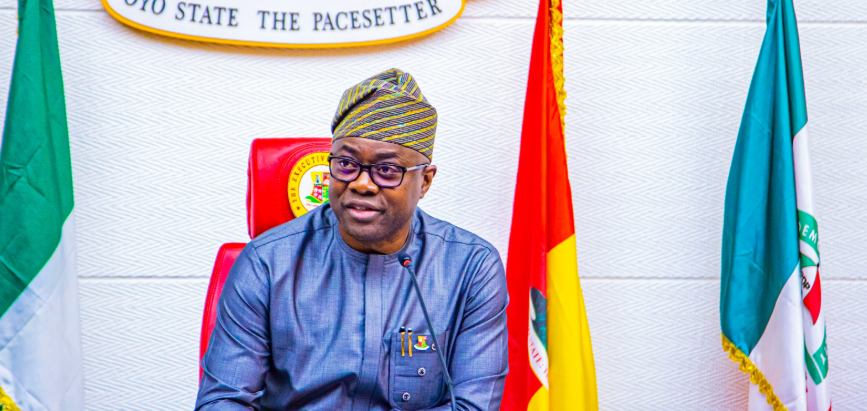Oyo State Governor Seyi Makinde has criticised the Minister of Works, David Umahi, for failing to provide a clear breakdown of the cost of the Lagos-Calabar Coastal Highway, urging greater transparency on the multi-trillion-naira project.
Speaking at an event in a viral video on Friday, Makinde said there was no reason for Umahi to be “dancing around the cost” of the controversial 700-kilometre highway, which was approved by President Bola Tinubu last year.
The governor’s comments followed a heated on-air exchange between Umahi and Arise TV presenter Rufai Oseni, who had asked the minister to explain the cost of the project on a per-kilometre basis.
Umahi, visibly irritated, dismissed the question as “elementary,” insisting that the cost per kilometre could not be uniform due to differences in terrain and engineering requirements. He further described himself as a “professor of practice in engineering” and told the journalist to “keep quiet,” claiming he lacked the technical knowledge to understand the explanation.
“These are elementary questions. The prices are different. The next kilometre is different from the next kilometre,” Umahi said during the exchange.
Oseni, however, stood his ground, responding, “Minister, it’s alright, keep dignifying yourself, and let the world know who you truly are.”
Reacting to the controversy, Makinde defended the journalist, arguing that it was reasonable for Nigerians to demand transparency about public expenditure on such a massive project.
“They asked a minister how much the coastal road is, and then you are dancing around and saying the next kilometre is different. Then what is the average cost?” Makinde asked.
To illustrate his point, Makinde cited examples from his administration’s road projects in Oyo State.
“When we did the Oyo to Iseyin road, it was about ₦9.99 billion — almost ₦10 billion — for about 34 or 35 kilometres. The average cost was around ₦238 million per kilometre.
When we did Iseyin to Ogbomoso, that was 76 kilometres for ₦43 billion — an average of about ₦500 million per kilometre — and we had two bridges,” he explained.
The Federal Government commenced work on the Lagos-Calabar Coastal Highway in 2023, covering nine states with two additional spurs connecting to northern regions. The project’s first phase — a 47.47-kilometre dual carriageway — was awarded to Hitech Construction Company Limited and is being built with concrete pavement.
Umahi, during the official handover of the project, had stressed that contractors must deliver within stipulated timelines and warned that the government would not entertain cost variations arising from delays.
However, the project has continued to generate public scrutiny, with critics questioning its transparency, environmental impact, and potential economic benefits, even as supporters describe it as a landmark infrastructure initiative that could boost coastal connectivity and tourism.
